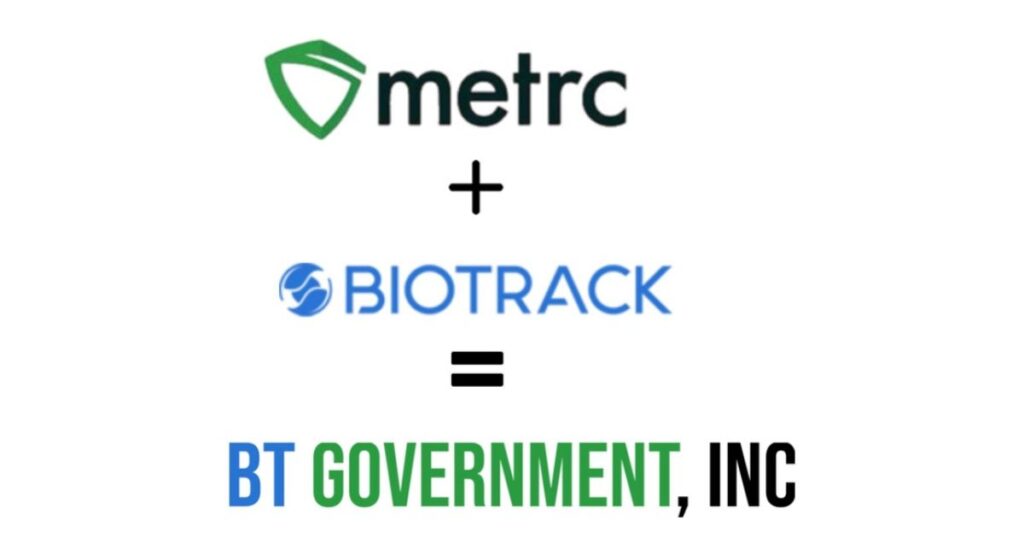In a move that could significantly shift the future of cannabis regulation in the U.S., track-and-trace heavyweights Metrc and BioTrack announced a strategic partnership last week that has already thrown several state programs, including New York’s, into disarray.
At the center of the announcement is a new entity called BT Government Inc., which is now slated to take over BioTrack’s government-facing operations. The company will be led by BioTrack’s own Chief Operating Officer, Moe Afaneh, and is being described as an “independent” operation — separate from both Metrc and BioTrack.
But the details are murky, and the timing couldn’t be worse.
Just days after the announcement, the New York Office of Cannabis Management abruptly paused its long-delayed track-and-trace rollout, which had been scheduled to go live August 1. Cultivators and other licensed operators had already begun onboarding with BioTrack when the plug was pulled. Now they are waiting for the state to “assess implications” and figure out what happens next.
This is not just a technical delay. It’s a signal that something much bigger may be happening behind the scenes in the compliance software sector — and operators, once again, are being kept in the dark.
A Consolidation Disguised as Collaboration?
On paper, the partnership seems like a realignment of business priorities. Metrc will continue to focus on its RFID-powered compliance infrastructure across the 29 states it already serves. BioTrack, which has seen its footprint shrink to just nine states, will reportedly redirect its energy toward commercial tools like point-of-sale systems and ERP software.
Meanwhile, BT Government is positioned as the new middleman — handling all of BioTrack’s government contracts but, according to its founders, remaining completely independent from both companies.
That’s a difficult line to sell when the person running the new company is a current BioTrack executive. Industry veterans know that “independent” often translates to “rebranded,” especially in cannabis tech, where transparency is rarely a priority and vertical integration runs deep.
What this deal looks like, especially to operators who’ve been forced to navigate both platforms, is less about collaboration and more about consolidation. And that’s already triggering concern.
New York Left in Limbo
For operators in New York, where the adult-use market has been stumbling through a chaotic rollout since day one, the news came at the worst possible moment, or the best depending who you ask.
In November 2022, the state awarded a five-year, $1.2 million contract to BioTrack to serve as its seed-to-sale tracking system, a significantly lower price tag than most states have paid for Metrc contracts. BioTrack soon informed licensees they’d be required to purchase individual product tags, including for every pre-roll, at $0.10 apiece. That sparked immediate backlash.
Critics pointed out that these so-called “sublot tags” were not required by statute and would drive up operating costs to unsustainable levels. Still, the state pushed forward, until the announcement of the Metrc-BioTrack partnership threw everything into question.
The pause from regulators came quickly. But no answers followed.
Operators Bear the Burden Again
As with nearly every major shakeup in the cannabis industry, it’s the licensed operator, not the tech companies or regulators — who are left shouldering the uncertainty.
New York cultivators had already been instructed to comply with BioTrack’s system starting August 1. Other license types, including retailers and processors, were gearing up for compliance deadlines this fall. Those timelines are now frozen, with no revised schedule in sight.
Some industry leaders see a potential upside. If Metrc is positioned to take over New York’s compliance platform, it could mean a shift toward a system that, for all its flaws, is at least familiar to multistate operators.
But even that silver lining comes wrapped in questions. Will the transition include a new pricing structure? Will operators get a break on startup costs? Will any of this reduce the red tape choking smaller, equity-focused businesses?
So far, no one knows. And regulators have offered no specifics.
A Monopoly in the Making?
Zooming out, the bigger story here may be what this signals for the national cannabis tech landscape.
Metrc has already cemented itself as the dominant player in government compliance software, with 29 states under contract. BioTrack, once a serious competitor, has been losing ground for years. Its acquisition by Alleaves in 2023 and earlier merger with MJ Freeway reflect a company trying to pivot just to stay relevant.
Now, with BT Government absorbing BioTrack’s state contracts and aligning its mission with Metrc’s regulatory ambitions, the market is beginning to look less like a competitive space and more like a monopoly in slow motion.
And as usual, that consolidation is being framed as progress — a step toward “consistency,” “innovation,” and “streamlined oversight.” But those buzzwords ring hollow for the operators who have spent years adapting to clunky software, unclear rules, and shifting compliance demands.
Conclusion: A Turning Point or Just More Uncertainty?
Whether this partnership ends up being a true evolution of cannabis compliance or just another example of consolidation disguised as strategy remains to be seen.
What’s clear is that the track-and-trace system — the backbone of legal cannabis supply chains — is once again being reshaped with little to no input from the people who actually grow, process, and sell the product.
If Metrc and BioTrack are serious about building trust in this industry, they’ll need to do a lot more than announce vague partnerships and reshuffle their org charts. They’ll need to deliver clarity, stability, and transparency — three things cannabis operators are still desperately waiting for and actual proof their software programs work.
Until then, the only thing this deal guarantees is more waiting, more questions, and more pressure on the people trying to keep this industry alive.

Derek Shirley was born and raised in Pittsburgh, Pennsylvania. At the age of 19, he received a felony for 4 ounces of cannabis. After, he became a “cannabis nomad” living in Ohio, Arizona, and Maine, which he now calls home, and lives with his wife Sequoia and son Haze.
Being a cannabis nomad had its advantages, like relying on all markets for his medical cannabis needs which gives him a unique perspective of the cannabis markets. Currently, he is an influential pro-cannabis activist in the state of Maine who helps local people and small businesses navigate their local and state governments without picking a political party specializing in protecting and preserving the small medical cannabis farmers of Maine. For fun, Derek enjoys screen printing and making cannabis memes under the pseudonym @gettinghighwithcats on IG
You can find more of Dereks articles at Beard Bros Pharms here.

















